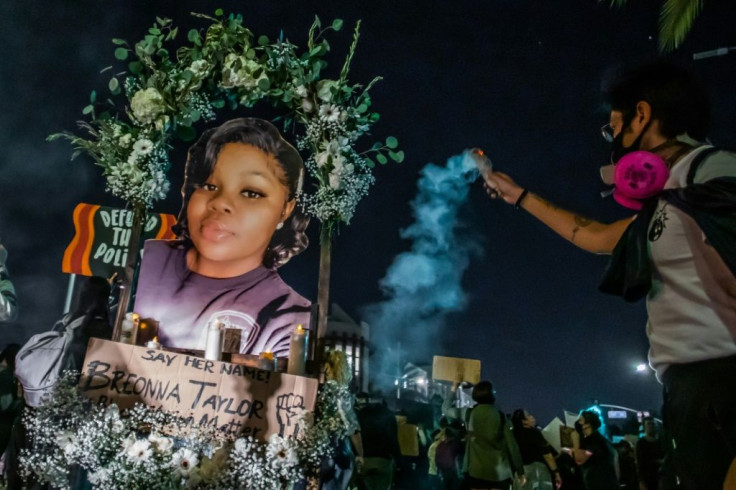How Breonna Taylor’s Death Influenced Virginia’s Newest Law
KEY POINTS
- Virginia has become the third state to pass laws banning no-knock warrants
- The move accompanies a series of police reforms, aimed at broader changes reducing police violence and the targeting of minorities
- The bans are nicknamed "Breonna's Law" after Breonna Taylor
Virginia has become the third state to ban no-knock warrants, prompted by the killing of Breonna Taylor and disproportionate violence by police against communities of color. The move comes with a series of police reform laws signed into law Wednesday.
Here’s the full list of new reforms, outlined in a press release from the governor:
- A ban on police seeking or executing no-knock warrants
- A reduction in police militarization by banning the requisition or use of specific military equipment
- A limitation on when officers can use neck restraints
- A requirement that officers intervene when they see another officer using excessive force
- A requirement that police departments and jails request the work and disciplinary history of new hires before taking them on
- A minimum training standard to ensure all officers receive information and practice with de-escalation techniques, racial awareness, and the harms of biased profiling
- An expansion and diversification of Virginia’s Criminal Justice Services Board with a focus on social justice and mental health
- A strengthening of the officer decertification process, and change that allows the Criminal Justice Services Board to initiate decertification
- The classification as a felony of an officer having sexual relations with someone they have authority over as part of the work.
Virginia joins Florida and Oregon in the ban, with Kentucky and Pennsylvania considering similar measures, USA Today reports.
“Too many families, in Virginia and across our nation, live in fear of being hurt or killed by police,” said Governor Northam’s statement. “These new laws represent a tremendous step forward in rebuilding trust between law enforcement and the communities they serve.”
The bans on no-knock warrants have become known informally as “Breonna’s laws” after Breonna Taylor, the woman of color killed in Lousiville in March. While the officers that shot her did not technically have a no-knock warrant and did knock on her door, her boyfriend says they would not identify themselves resulting in a shootout when he thought they were home invaders.
Of the three officers involved in the shooting, only the one that did not shoot Taylor and instead shot into the apartment of a white family next door was charged. It’s become clear after a judge lifted the gag order on the trial that the grand jury wanted to charge the others but were not given the option by prosecutors.
Other bills approved also echo high-profile police killings: the limitation on neck restraints and requirement that police intervene when an office is being excessively forceful harken back to the killing of George Floyd.
Floyd was killed in May after an officer knelt on his neck for almost 9 straight minutes while other officers looked on and witnesses begged them to let him breathe. Video of the incident kicked off months of nationwide protest over police brutality against people of color.

© Copyright IBTimes 2025. All rights reserved.





















